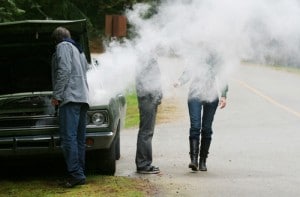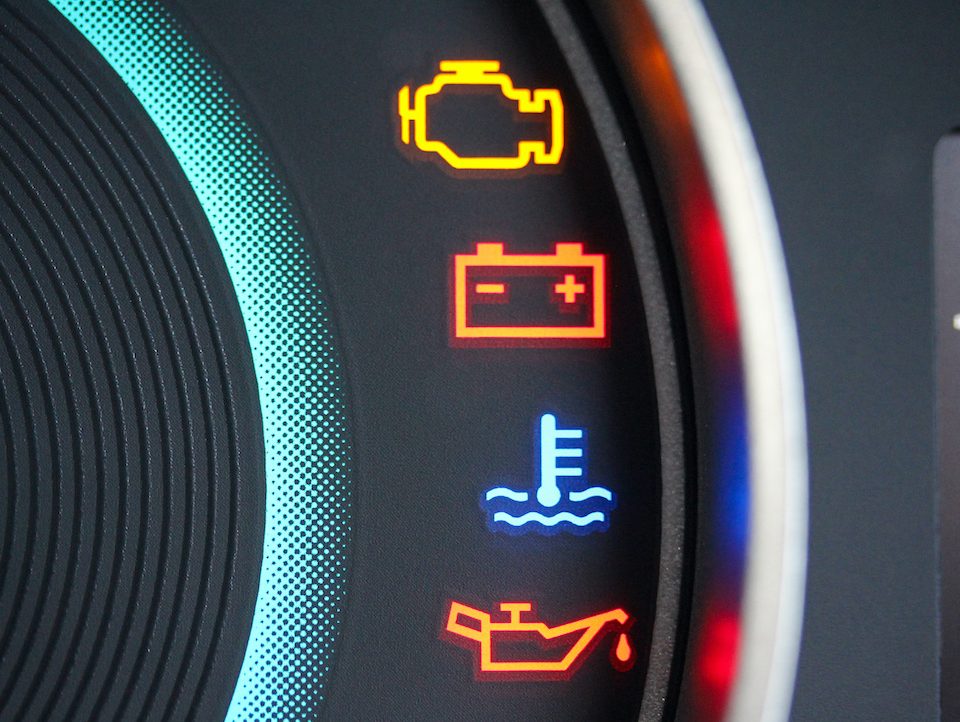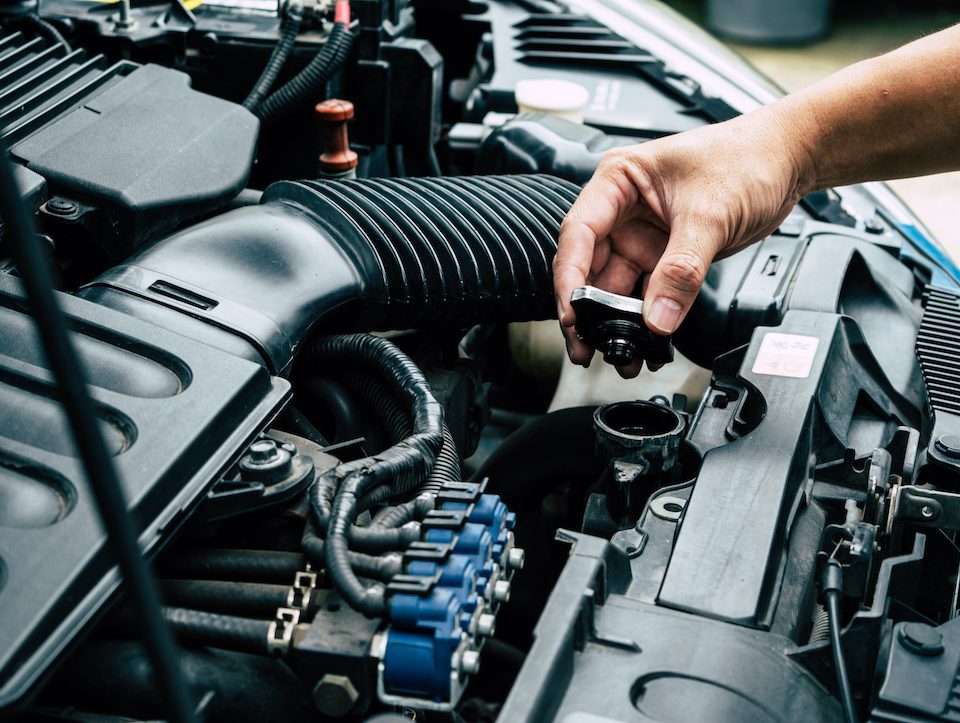Your Guide To Renovating Car Carpeting
June 21, 2016Keeping Cool All Summer with Automotive Air Conditioning
July 6, 2016
Top Causes of Overheating
ASC explains the most common reasons an engine might overheat:
- Coolant leak: This is the most common cause of overheating. A cooling system keeps the engine from overheating, but if there’s a leak, coolant levels drop and stop doing the job.
- Improper coolant dilution: When you buy coolant, you can find either pre-mixed solutions or 100% coolant, which you need to mix with water yourself. Using the wrong coolant or diluting it incorrectly can lead to overheating. If you suspect this is the cause in your case, it’s best to flush and refill the system.
- Bad thermostat: This valve controls coolant flow into the engine. In the winter, the valve stays closed longer to help the engine warm up. If it gets stuck in the closed position during the summer, the engine quickly overheats.
- Blocked passageways: Even if the thermostat is wide open, dirt and sediment can block coolant flow, limiting its ability to cool the engine. A system flush is the best way to remove this debris.
- Radiator malfunction: Coolant travels through the radiator to reduce its temperature. Clogs and leaks can cause the radiator to fail. A wobbly or worn out fan could also fail to bring coolant temperatures down, leading to an overheated engine.
- Loose or disconnected belt: The belt is what turns the water pump at the right speed for proper coolant flow. A problem with the belt means poor coolant flow and hotter engine temperatures.
- Faulty water pump: This component pressurizes and propels coolant through the engine. Eroded impeller vanes, a wobbly pump shaft or water pump seepage could prevent proper coolant flow and cause the engine to overheat.
How to Handle an Overheated Engine
No matter the time of year, always carry an extra bottle of coolant in the car. Then, follow these steps courtesy of Esurance if you see the temperature gauge on your dashboard approaching the red zone:
- Immediately turn off the air conditioning. A/C puts a lot of strain on your engine, so you may be able to bring the temperature back down with this step alone.
- If the gauge doesn’t drop, crank up the heater to full blast. You might be uncomfortable for the next few miles, but this transfer of heat away from the engine might just help you make it to your destination. Feel free to roll down the windows to help you get through this experience.
- Pull over and turn off the engine if the problem persists. Pop the hood from the driver’s seat, but give the engine a good 30 minutes before you stick your hands under the hood, especially if steam is wafting off the engine.
- If the coolant tank –a translucent container near the radiator–is empty, a coolant leak is the culprit. Place a cloth over the radiator cap to protect your hand and unscrew the cap. Refill the tank with your spare coolant. Make sure it’s a 50/50 mix. If you don’t have coolant on hand, plain water will get you as far as the auto repair shop. Just don’t pour cold water onto a hot radiator or the engine block could crack from the sudden temperature change.
- If the coolant tank is full, one of the other problems outlined above could be causing the engine to overheat. There’s nothing you can do on the side of the road; you’ll have to call a tow truck. Scott’s Fort Collins Auto & Repair offers a towing service to get you and your car safely into the shop.
There’s only so long you can keep refilling the coolant tank if the system has sprung a leak. And if your car continually overheats without a coolant leak, that’s a sign of bigger trouble. Bring your car in to Scott’s for a cooling system repair and service so you can solve the problem once and for all. For more tips, or to schedule an appointment, please contact us or call (970) 682-4202.



